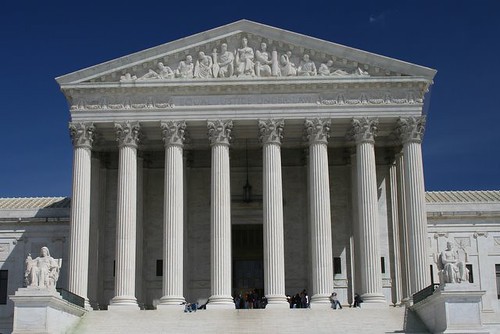
On April 14, Congressional Democrats proposed legislation that would expand the Supreme Court to 13 justices, as opposed to nine – the longstanding standard since 1869. This proposal is the first significant effort to overhaul the Supreme Court since President Roosevelt attempted to expand it in his second term.
The number of justices on the Supreme Court is established through a Federal Statute, not within the Constitution. According to the House of Representatives Judiciary members, the legislation is an attempt to rectify the actions of judicial appointments made by former President Donald Trump.
“As our country has grown, so should the Supreme Court,” Democratic Rep. Jerry Nadler (D-NY), chair of the judiciary committee, stated. “13 justices for 13 circuits is a logical progression.”
The proposal follows a recent executive order by President Joe Biden that calls for a bipartisan commission to study the Supreme Court and its history, which will include the legality of any proposed changes. The commission will focus on reviewing the current lifetime tenure of Justices and the number of judges allowed to serve. The commission has yet to report its findings.
As top Congressional leaders in both political parties criticize the proposed legislation, the bill will be facing an uphill battle before it is even considered for a vote.
House Speaker Nancy Pelosi (D-CA) said she supported Biden’s effort to study the history of the Supreme Court but stopped short of supporting the legislation that would expand it. Pelosi told reporters that she had no intention of bringing it to the House floor to be voted on. In October, President Biden was asked about the issue of expanding the Supreme Court and said that he was “not a fan of court-packing.”
Along with criticism within the Democratic Party, the proposal has been universally dismissed by Republicans. Sen. Lindsey Graham (R-SC) described the attempt to expand the Supreme Court as a “terrible idea.”
“The stability is what I worry about,” Graham stated. “If they try to expand the court to dilute a conservative majority, the next time Republicans are in power – will we change the number? And you make the Supreme Court basically a political football – it loses its independence, its consistency.”
Graham’s sentiment is not only shared by the Republican party but by some Supreme Court Justices as well.
“It is wrong to think of the Court as another political institution,” Justice Stephen Breyer said during a speech at Harvard Law. “And it is doubly wrong to think of its members as junior league politicians. Structural alteration motivated by the perception of political influence can only feed that perception, further eroding that trust.”
After the announcement of the proposed legislation, Rasmussen – a self-described nonpartisan, independent electronic data company – conducted an independent survey on one thousand voters, finding that 55% of likely voters opposed the expansion of the Supreme Court. Rasmussen conducted a similar survey last fall and found mirrored results: 53% of likely voters opposed the expansion of the Supreme Court.
However, creating term limits for justices appears to be a more popular proposal for any changes to the Supreme Court. In Rasmussen’s fall survey, they found that 52% of likely voters supported term limits for Supreme Court Justices. Similarly, a Reuters poll found that 63% of likely voters from their surveyed population wanted lifetime appointments to end.
The next step in the process depends on if the proposed legislation is accepted to be heard on the House floor. If the measure is not heard, the next step will undoubtedly depend on the recommendation from the bipartisan commission.
